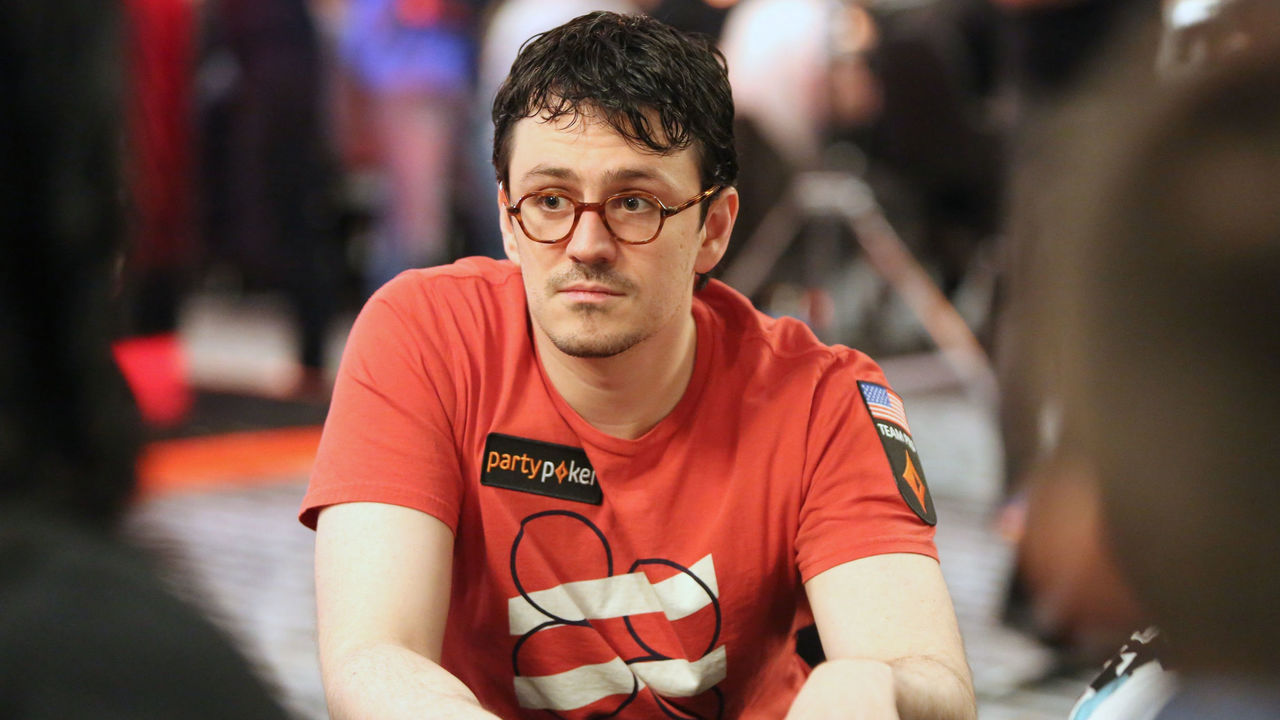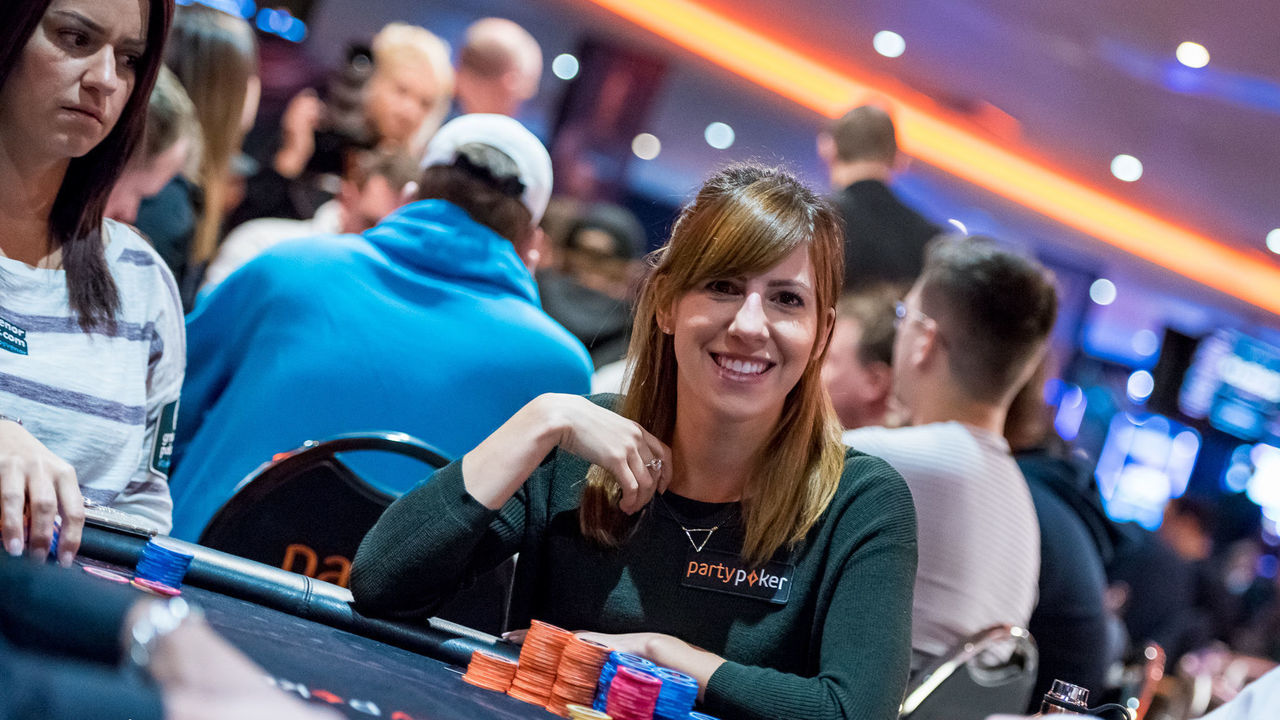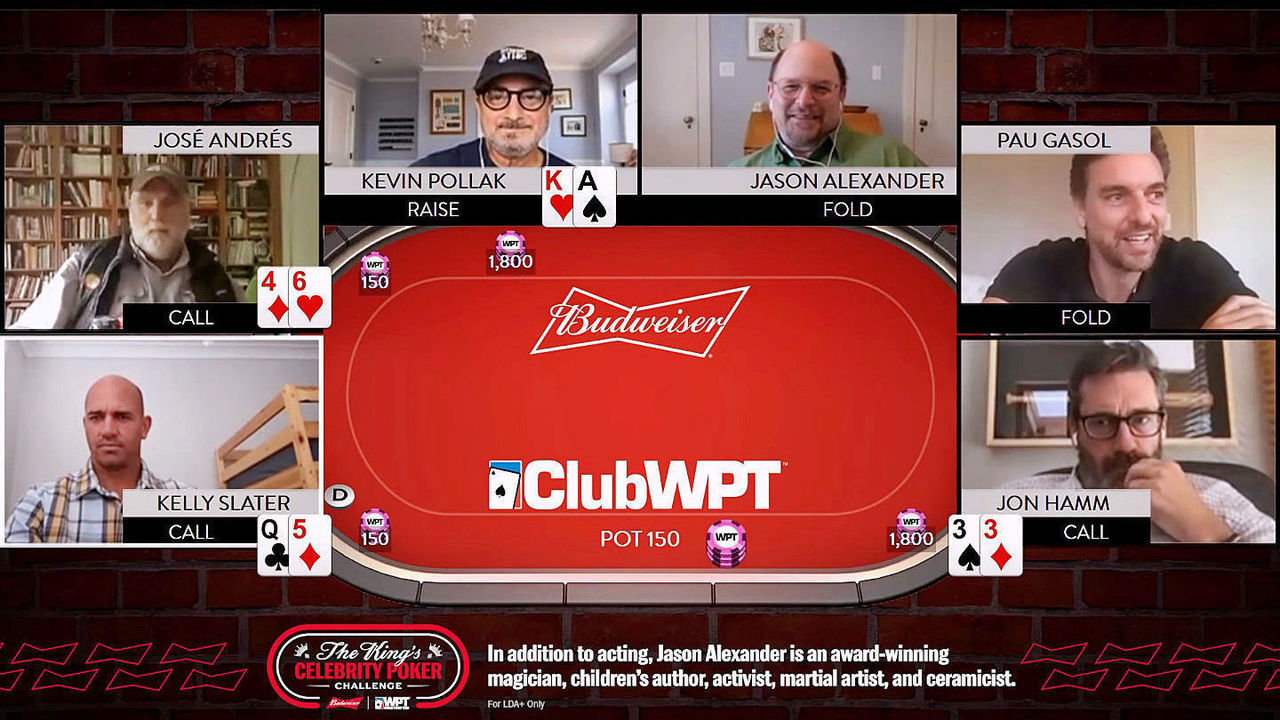Online poker 'booming' in lockdown at every level of the game
When Isaac Haxton flies to live poker tournaments, he returns home with a cold nearly half the time.
The 34-year-old American pro is an authority on the interlocking habits, demands, and stresses that foment sickness in his line of work. Players arrive for marquee events from all over the world, encountering any number of strangers in airports, taxis, and hotel lobbies en route. Jet lag and exacting schedules - the games can run mostly nonstop from noon to 2 a.m. - deprive them of sleep and compel them to eat at the table, where opponents in close confines cough and sneeze, touch their own faces, and handle common sets of cards and chips.
Contemplating this scene in the COVID-19 age is nightmarish, which helps explain why in-person play halted earlier this year. Granted, there's plenty about the tournament atmosphere that Haxton appreciates and misses, as he blogged in May for partypoker, the online card room he endorses: "Sitting around a table, shuffling chips, talking s---. Drinking too much coffee. The steady, mellow pace that can make 12 hours pass before you’ve noticed." Something is fun, he acknowledges, about managing and playing through the fatigue that builds over a long series.
That said, "it would be more pleasant to dial that intensity back a little," Haxton told theScore in a recent phone interview. "Your family could travel with you to a poker tournament. You could have some time to hang out with them. You could have time to take care of yourself and be relaxed and healthy.
"I do think that the hiatus is going to provide an occasion to reconsider this stuff," he said. "It is going to be more possible than it would be under business-as-usual conditions to consider doing things differently."

No business is operating as usual during the coronavirus pandemic, but when it comes to sports and adjacent forms of competition go, poker encountered distinct challenges when casinos closed across the United States and abroad. World Poker Tour stops from Las Vegas to Vietnam and more than a dozen points in between were canceled or postponed from mid-March onward. The World Series of Poker was due to proceed in Las Vegas from May into July; that extravaganza, too, had to be scrubbed.
Poker's predicament also had a distinct solution. Consider the revised plan for this year's WSOP: shift the 51st edition of the show online, starting July 1 and continuing through the summer.
Pros and amateurs alike have pivoted to online poker in droves, enabling the computerized version of the game to flourish in the absence of live-table action. Google searches on the subject surged in the U.S. and worldwide as people started to shelter inside. Gameplay spiked at major sites that offer home-game options for groups of friends. This emergent interest spurred record revenue for states where online poker is legalized, MarketWatch reports, including New Jersey and Pennsylvania.
More than 700 of the U.S.' 989 casinos have already reopened, per the American Gaming Association, with capacity restrictions, player temperature checks, and a gamut of other distancing and sanitation protocols in place. Yet as the Vegas-based poker magazine Card Player wrote in May, "Lockdown has taken a toll on people, and fear isn’t going to go away for some time." Haxton, for one, is inclined to think that live poker - large international events, in particular - shouldn't resume before an effective COVID-19 vaccine is made available.
In the meantime, Haxton is aware of his professional good fortune. He's making money, feeling productive, and taking advantage of a fruitful recourse that isn't available to athletes in physical sports. As Card Player put it, online providers "offer the land-based experience on the web, just a couple of clicks away."
"The amount of high-stakes poker, especially tournament poker, that you can play online right now really doesn't compare to any previous point in history," Haxton said.
"It's been booming," Canadian pro Kristen Bicknell said.

The week that the NBA's shutdown prompted almost every league to follow, Bicknell was in San Jose for one of the last live showcases played amid the coronavirus. She flew home to Toronto when the conclusion of the event was expedited and has since spent her working hours playing up to 14 virtual tables at a time. Leading companies such as partypoker and GG Poker, her go-to sites, were quick to move high-profile upcoming tournaments online, bolstering the selection of quality games that she and Haxton say can now be found daily.
There are drawbacks to exclusively playing online, the pros note. Gone are some manifestations of poker's personal touch: feeling the chips, discerning if a player's manner betrays his or her cards, reveling in that opponent's irritation at those hands they lose. Trash talk routed through WhatsApp doesn't quite land the same, Haxton said.
Still, reasons to value the corresponding upsides abound. Bicknell believes she's improved significantly since March thanks to the particularities of online play: the many simultaneous games she can enter, the hand histories she can save and learn from upon later review. The speedier pace is another boon. Poker players might cycle through 300 hands in a full day on the felt, Haxton said, but can play 5-10 times that many in the same period online.
"You get to the long run faster," Haxton said. "If you have a losing stretch of 10,000 hands, that's a few days online. That's a month live. Professionally, it's a more stable and reliable way to make money in a lot of ways."
That appeal evidently applies to the recreational ranks, too. PokerStars, to cite one online cardroom whose users can play with friends for free, has seen this option's popularity balloon, with more than 300,000 home-game clubs created since March 1. Members in certain locations can set real-money stakes, but most active PokerStars home clubs use play money, a company spokesperson said in an email, seemingly bespeaking players' desire to maintain communal ties.
"With home games especially, there are no expectations. The social interaction and engagement comes first, with poker as the catalyst, and players seem to really appreciate that," PokerStars associate director of public relations Rebecca McAdam Willetts wrote. "People want to connect, and poker gives them the opportunity to do so in a fun and social way."

As online poker has grown in stature, so have novel means to disseminate the product to the masses. Home games are now available on PokerStars' Android app, marking the service's mobile debut. Viewership is up on Twitch, exhibited by the 58,416 people - a poker record - that Dutch pro Lex Veldhuis attracted to the platform during his run at a championship event in May. When Bicknell streamed a live session for partypoker's Twitch page recently, she realized it was a departure from her normal home setup: "I'm used to sitting in my pajamas, playing alone, nobody seeing what I'm doing or how I'm playing."
It's welcome entertainment, as well. "People want that element of it: to see the reactions, the highs and lows of poker," Bicknell said. "That's the fun of the game."
Those sensations won't be conveyed in person at this year's World Series of Poker, but Bicknell still expects a big turnout among players online. Even once casinos are ubiquitously open, she imagines it'll be a while before people feel comfortable traveling for events of that magnitude. For now, some hints of the live game still materialize on the screen, like a trend she's noticed lately: More players are ditching online monikers in favor of using their real name.
Haxton, for his part, has thought up a range of possible changes to the live experience that he'd like to see stick "even in a fully post-coronavirus world." Players shouldn't be discouraged, by rules or by stigma, from wearing a face mask at the table if they feel sick. Nor should poker culture perpetuate the expectation that they ought to compete through illness. If event schedules weren't quite so grueling, everyone involved could devote more time to self-care. That's another draw to playing virtually, Haxton said: His daily sessions hew closer to eight hours than 12 or 14, and at home, he can cook, exercise, and sleep in his own bed.
That Haxton has filled those hours for months now seems to support another thesis of his: There's demand among players of his standing for regular $10,000 and $25,000 buy-in tournaments online. Even when live poker becomes viable again, he figures that feeling won't wane.
"I think it's going to have a little bit of staying power," he said. "I've been really enjoying it, playing online poker, and I get the sense my peers feel the same way."
Nick Faris is a features writer at theScore.